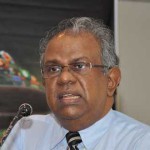A Brief Colonial History Of Ceylon(SriLanka)
Sri Lanka: One Island Two Nations
A Brief Colonial History Of Ceylon(SriLanka)
Sri Lanka: One Island Two Nations
(Full Story)
Search This Blog
Back to 500BC.
==========================
Thiranjala Weerasinghe sj.- One Island Two Nations
?????????????????????????????????????????????????Wednesday, May 30, 2018
Excavation continues in Mannar after human bones found
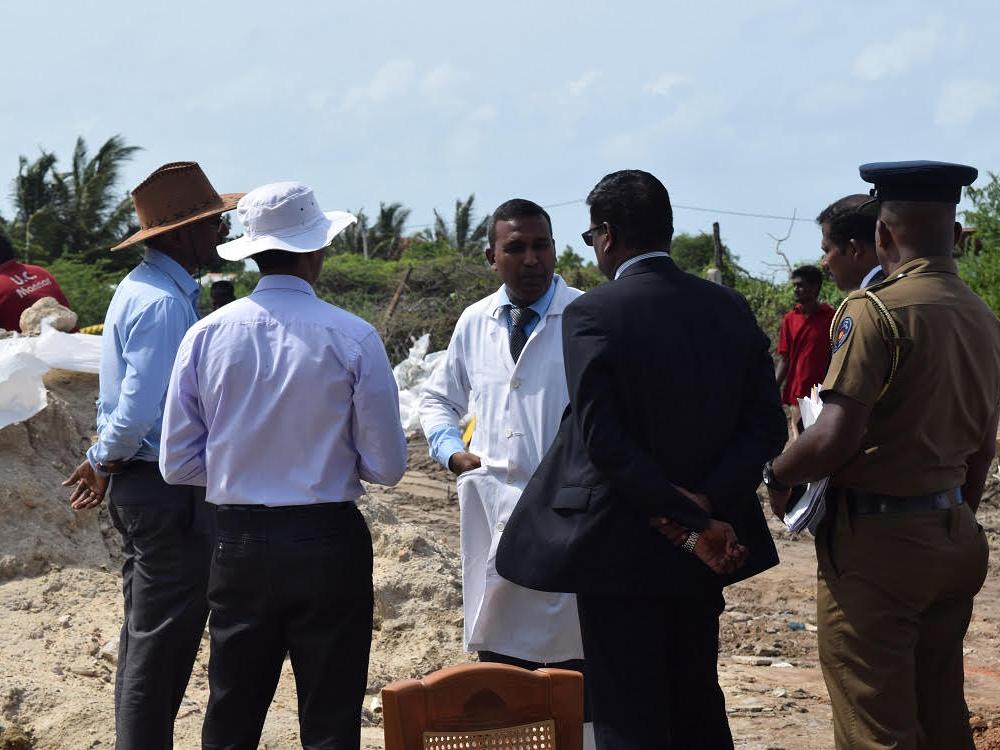 Excavation continued at a construction site in Mannar yesterday after human bones were discovered earlier this month.
Excavation continued at a construction site in Mannar yesterday after human bones were discovered earlier this month.
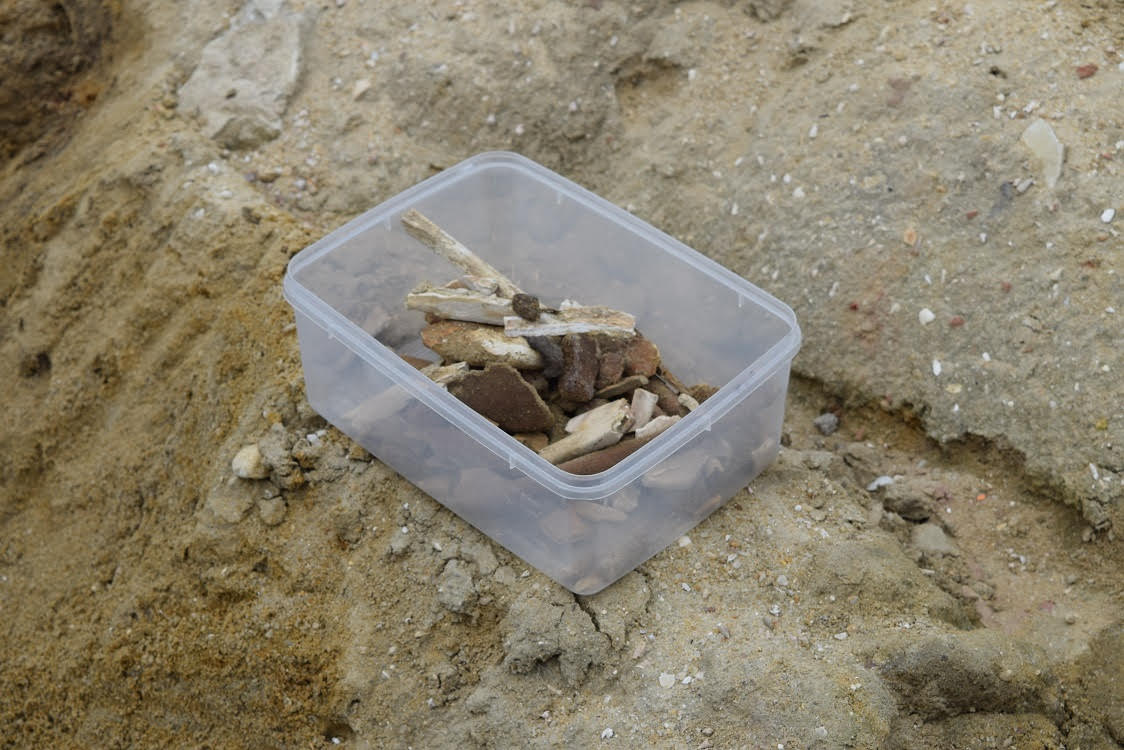 Bones and teeth were recovered as police, military personnel and a Mannar judge observed.
Excavation work is set to continue this week.
Bones and teeth were recovered as police, military personnel and a Mannar judge observed.
Excavation work is set to continue this week.
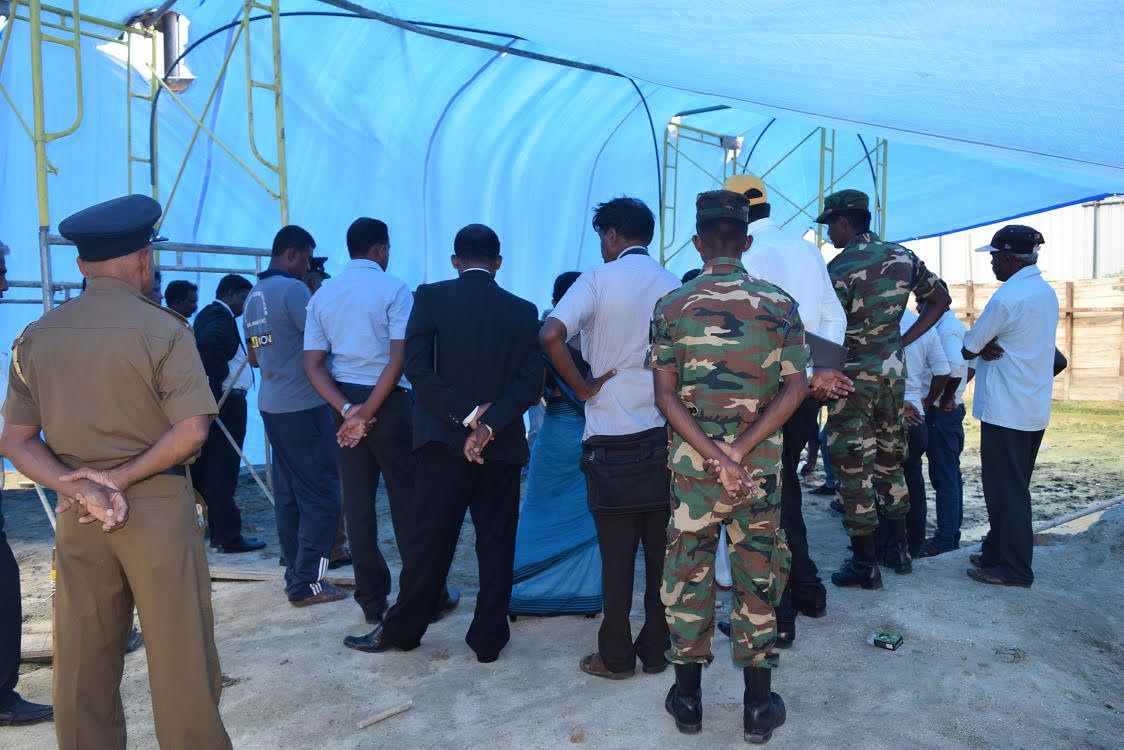 Human bones were discovered at an excavation site on May 17 after work began to erect a new entrance way in the town.
The bones were first discovered within sand that had been excavated from
the site and sold on to local residents earlier this year.
One resident who discovered bones he suspected of being human in origin,
informed the police on March 26 of the finding. Officers visited his
home and excavation work at the site was suspended pending further
investigation.
On Tuesday this week, a Mannar judge, police officers and forensic
specialists visited the site and embarked on preliminary excavations of
the site, revealing many more bones believed to be of human in origin.
Related Articles:
17 May 2018 : Human bones found in Mannar excavation site
Human bones were discovered at an excavation site on May 17 after work began to erect a new entrance way in the town.
The bones were first discovered within sand that had been excavated from
the site and sold on to local residents earlier this year.
One resident who discovered bones he suspected of being human in origin,
informed the police on March 26 of the finding. Officers visited his
home and excavation work at the site was suspended pending further
investigation.
On Tuesday this week, a Mannar judge, police officers and forensic
specialists visited the site and embarked on preliminary excavations of
the site, revealing many more bones believed to be of human in origin.
Related Articles:
17 May 2018 : Human bones found in Mannar excavation site

Excavation continued at a construction site in Mannar yesterday after human bones were discovered earlier this month.

Bones and teeth were recovered as police, military personnel and a Mannar judge observed.
Excavation work is set to continue this week.

Human bones were discovered at an excavation site on May 17 after work began to erect a new entrance way in the town.
The bones were first discovered within sand that had been excavated from
the site and sold on to local residents earlier this year.
One resident who discovered bones he suspected of being human in origin,
informed the police on March 26 of the finding. Officers visited his
home and excavation work at the site was suspended pending further
investigation.
On Tuesday this week, a Mannar judge, police officers and forensic
specialists visited the site and embarked on preliminary excavations of
the site, revealing many more bones believed to be of human in origin.
Related Articles:
17 May 2018 : Human bones found in Mannar excavation site
AS SRI LANKA CONTINUES TO FAIL IN THEIR COMMITMENTS THE INTERNATIONAL COMMUNITY, IT MUST ACT – SAMPANTHAN
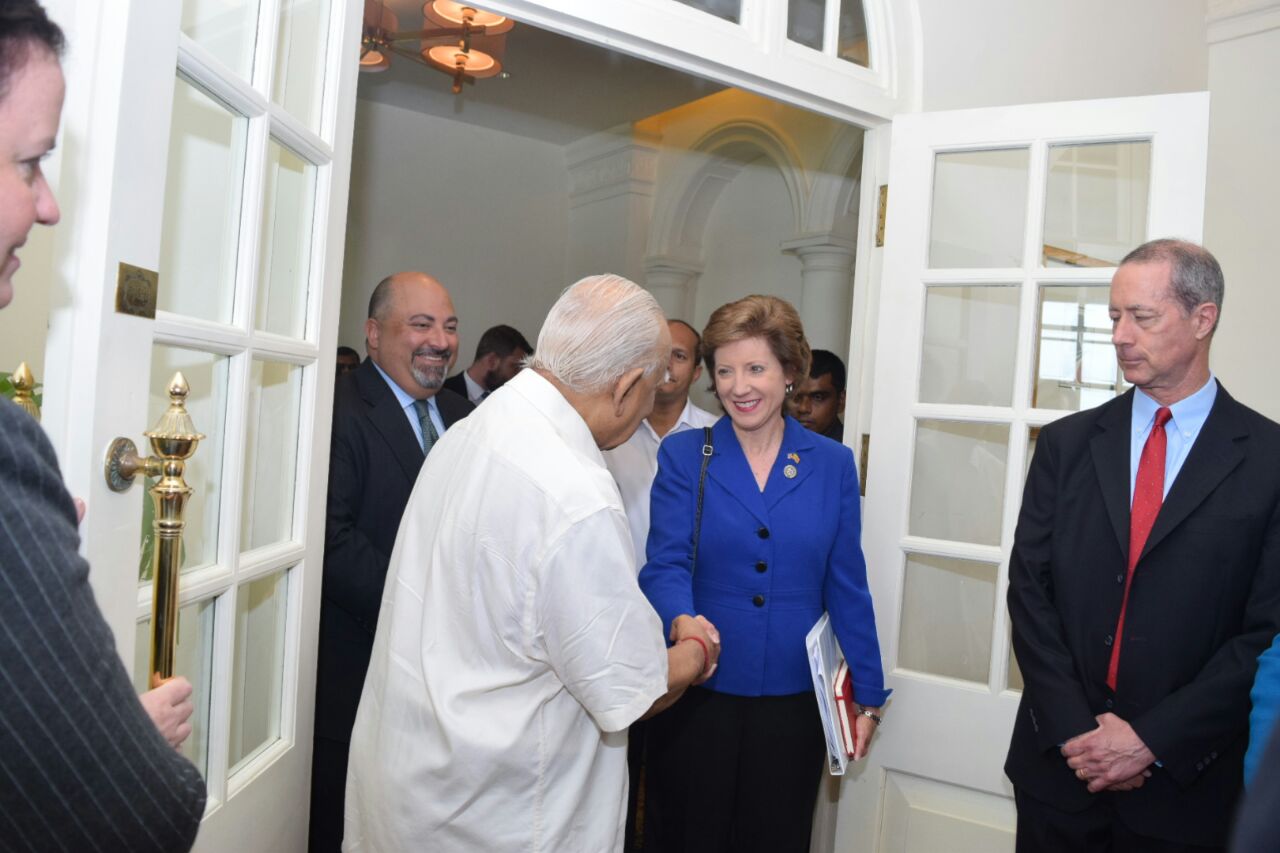
 30/05/2018
30/05/2018In a meeting with the visiting United States House of Representatives Armed Services Committee Delegation , TNA leader R.Sampanthan has “urged the delegation that the role of the International community with regard to Sri Lanka must be defined in relation to the UNHRC recommendations.” He has further said that “the International community must ensure that the promises and the commitments given by the Sri Lankan Government are adhered to and implemented. The International community cannot be a spectator anymore with regard to Sri Lanka, if the government of Sri Lanka continues to fail in their commitments the international community must clearly state their position on their follow up mechanisms to safeguard the victims and ensure the non-recurrence of the past”
Full statement issued by the TNA fellows:
(30.05.2018 /Press Statement)
The visiting United States House of Representatives Armed Services Committee Delegation led by Hon. McClellen Thornberry met with the Leader of the Opposition and the Tamil National Alliance Mr. Sampanthan today in Colombo.
Mr. Sampanthan briefed the delegation on the current political situation in the country and emphasized the importance of both President and Prime Minister Working together in order to find solutions to fundamental issues and taking this country forward. “We are unhappy about the way the country is progressing,” Mr. Sampanthan told the delegation.
Answering a question Mr. Sampanthan said, that “the majority of the people in this country are willing to address the national issue once and for all. What is lacking is that the courage from the Sinhala leaders to go out to the people and explicitly tell them on the need for a new Constitution and the benefits of framing a new Constitution he said. Some Sinhala political leaders are trying to satisfy the hardliners than being just and equal to all people in this country, they cannot go on this path forever, it will only end up in history being repeated Mr. Sampanthan said.
Further Speaking Mr. Sampanthan said, “Especially the President and the Prime Minister must go to the Sinhala people and genuinely explain the need for a new Constitution. Since 1988 every successive government and President have made several attempts to change the present Constitution, therefore, this should not be a difficult task for the majority of Sinhala people to understand” he said.
We want a solution within a united undivided and indivisible country Mr. Sampanthan said. The power-sharing arrangements should be in accordance with the international covenant on Civil and Political Rights, International Covenant on Economic Social and Cultural Rights and the Universal Declaration of Human Rights Mr. Sampanthan told the delegation.
Expressing his concerns on the stalled process of drafting a new Constitution Mr. Sampanthan said that a New Constitution would pave the way to solve many issues that this country has faced including the heavy debt and economic prosperity, and therefore this effort cannot be abandoned he said”.
Explaining further Mr. Sampanthan said that the legitimate demands of the Tamil people in finding a lasting solution to the national question could only be addressed through adopting a new Constitution. Mr. Sampanthan highlighted that his party is confident that if the Constitution is passed in Parliament with a two-thirds majority it will be approved by the people at a referendum, which is necessary for a new Constitution he said.
We may have to rethink and our people will be forced to rethink our position if things do not go well and if things are not achieved within a certain timeframe Mr. Sampanthan cautioned.
 Mr.
Sampanthan reminded the delegation that the Government of Sri Lanka has
given a Commitment to fully implement the UNHRC resolution adopted in
2015 before March 2019. They must fast-track their process to achieve
those commitments.
Mr.
Sampanthan reminded the delegation that the Government of Sri Lanka has
given a Commitment to fully implement the UNHRC resolution adopted in
2015 before March 2019. They must fast-track their process to achieve
those commitments.Mr. Sampanthan urged the delegation that the role of the International community with regard to Sri Lanka must be defined in relation to the UNHRC recommendations. The International community must ensure that the promises and the commitments given by the Sri Lankan Government are adhered to and implemented. The International community cannot be a spectator anymore with regard to Sri Lanka, if the government of Sri Lanka continues to fail in their commitments the international community must clearly state their position on their follow up mechanisms to safeguard the victims and ensure the non-recurrence of the past Mr. Sampanthan said.
Along with Hon. McClellen Thornberry the congress members, Mr. Enrigue Cullar, Ms. Vicky Hartzler, Ms. Carol Shea – Porter and the United States Ambassador to Sri Lanka His Excellency Atul Keshap was also present at the meeting which lasted for 45 minutes.
RENEWED INTEREST FOR ECONOMIC RESURGENCE IN NORTH
Most donors could be thinking of exit given that the post-war period will touch 10 years by May next year. I would argue that there needs to be another major push given this opportunity for development. So, donors should also commit to greater support and
Dr. Ahilan Kadirgamar
 By Azhar Razak-27 May, 2018
By Azhar Razak-27 May, 2018Sri Lanka’s former-war wrecked Northern region is witnessing signs of economic resurgence with greater political will being demonstrated by the Central Government and the shifting of focus by the local Tamil leadership towards development, as the Provincial Election also nears, observes a top regional researcher.
which allocation have been made available under budget -2018 by respective ministries
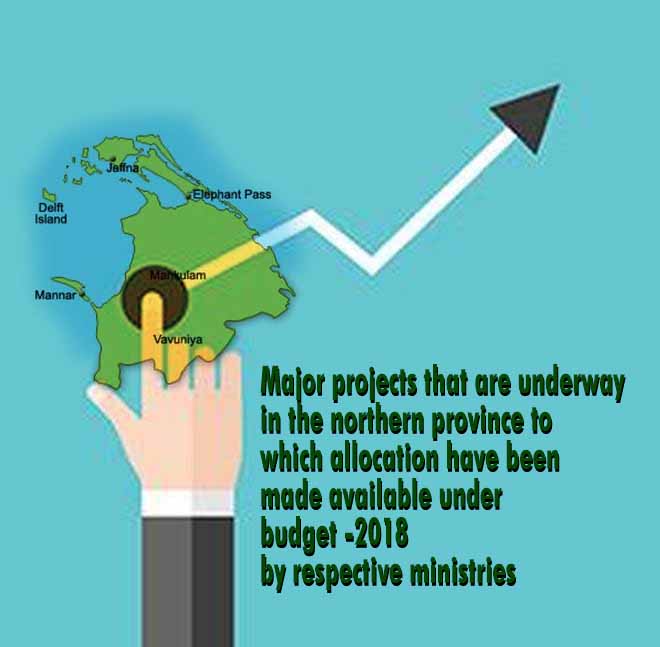
2. Strengthen to include state of art library facility and an IT centre at Vavuniya Campus by Higher Education Ministry
Allocation is Rs 200 million
Allocation is Rs 3000 million
5. Economic empowerment and social infrastructure
development and special programmes to address the needs of the
differently abled women in the northern and eastern provinces by
Rehabilitation and resettlement ministry
Allocation is Rs 2750 million
6. Supporting indebted people in Northern and North
Central Provinces through Credit Cooperative Societies by Ministry of
Rehabilitation and resettlement ministry
7. Support selected small industries in the northern
province via producer cooperatives by by Ministry of Rehabilitation and
resettlement ministry
8. Resttlement of Sinhala and Muslim IDPs. Provisions
of Housing and infrastructure by Ministry of Rehabilitation and
resettlement ministry
Allocation Rs 750 million
9. to expedite the resettlement process which includes
the rehabilitation of the Mannar town area with shopping complexes and a
bus stand and continue the township development programme at
Silawathurai
Allocation is Rs 250 million
10. Restore the Cultural Hall in Thaalvupadu in Mannar
11. Strengthening Reconciliation focusing on Economic
Empowerment and Social infrastructure development and Special programme
to address the needs of the differently abled women in the northern and
the eastern provinces by Ministry of Rehabilitation and resettlement
ministry
Allocation is Rs 2750 million
12. Establish a Modern dedicated economic centre in
Jaffna connected to Dambulla Econ Centre and to Colombo by Ministry of
National Integration
Allocation is Rs 100 million
Allocation is Rs 100 million
Apart from this general programmes such as township development
projects, rural road development fishery harbour development projects
implemented commonly covers the northern province as well
---------------------------
by (2018-05-29 02:18:54)
by (2018-05-29 02:18:54)
Media Rights Groups Silent On Assault Of Kalai Kathir Journalist
Although there are a dozen or so organizations that have mandated
themselves to advocate and fight for freedom of expression, media rights
and the safety of media personnel, only the Tamil Media Alliance has
expressed outrage at the assault of Kalai Kathir journalist Selvarasa
Rajendran in the early hours of Monday (28th)
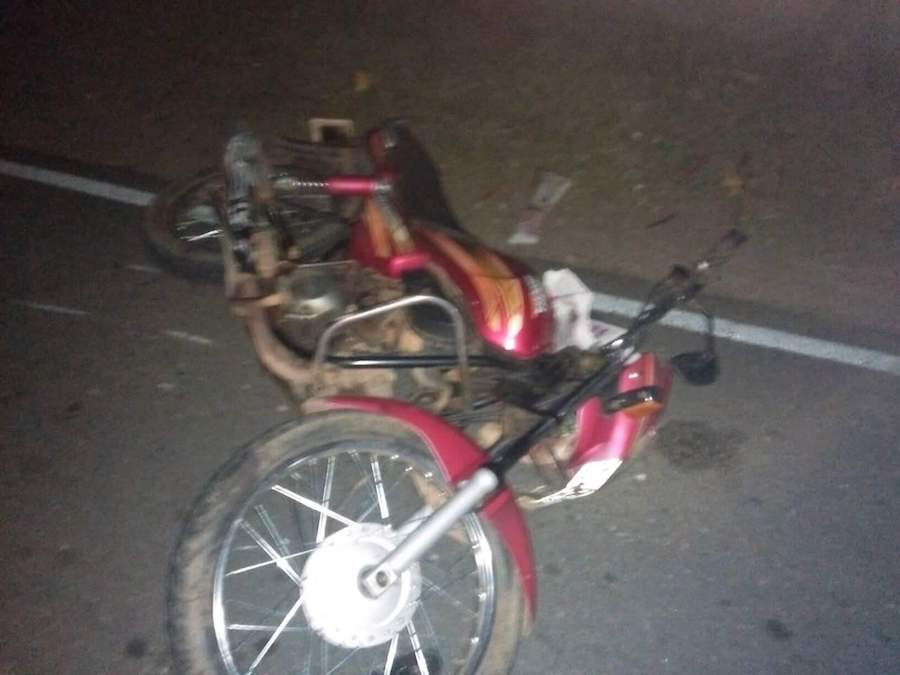 Rajendran
was assaulted by a gang of ten near the Jaffna Bus Stand and is
currently in hospital obtaining treatment for injuries sustained during
the attack.
Rajendran
was assaulted by a gang of ten near the Jaffna Bus Stand and is
currently in hospital obtaining treatment for injuries sustained during
the attack.
The Tamil Media Alliance has issued a statement in Tamil expressing
shock at the assault at urging relevant government authorities to act
swiftly to investigate and bring the assailants before the law.
Rajendran, who is also in charge of circulation at night, had taken on
the distribution job since the regular delivery boy had been absent.
Between 3.30 and 3.45 am 10 masked persons had arrived in five
motorcycles, accosted him near the Jaffna bus stand and attacked him
with swords and knives. He was severely injured and his bicycle was also
damaged.
Nadesapillai Vithyatharan, Editor of Kalai Kathir, a newspaper that was
launched in 2016, told Colombo Telegraph that it is shocking that this
attack took place just hours after the Prime Minister visited Jaffna.
‘They were wearing masks and came in motorcycle with covered number
plates, so CCTV cameras would not be of any help in tracing the
assailants.’
Kalai Kathir has published several features of late exposing criminal activity in Jaffna, including illicit sand mining.
‘My suspicion is that all this is happening with the connivance of
high-ups and the boldness of this assault makes one wonder if
authorities are in the know and have chosen to look the other way,’
Vithyatharan said.
Read More
Economic Disparity and Nationalism — Part 1

Historically and in the present era, governments elected by the populace that are not compatible with the interests of powerful capitalist conglomerates and states have been overthrown by killing tens of thousands of men, women and children to bring to power corporate friendly tyrants.
( May 29, 2018, Melbourne, Sri Lanka Guardian) The
cold war in the form that existed in the last century disappeared with
the collapse of the state capitalistic model of ‘socialism’ as was
practised in the Soviet Union and the Eastern Bloc. The world is left
with a few countries that follow the same state capitalistic model.
Despite the belief that the cold war ended with the collapse of the
Soviet Union, a new cold war appears to have emerged with a vengeance.
Though the protagonists of this appear to be the corporate capitalist
interests of the United States and its allies versus the Russian
Federation and its oligarchs, the real focus of the west’s fear and ire
could be the Peoples’ Republic of China.
Since the collapse of the Soviet Union, the corporate capitalist system
has reigned supreme almost all over the world, with its attendant severe
socio-economic and cultural crises. Peoples’ democracy in the proper
sense of the word has not been able to survive with the reappearance of
unbridled capitalism in the corporate and state sectors. Such crises
have made many western capitalist societies almost dysfunctional. Under
open economy and free market conditions, economic disparity has
continued to surge, mainly due to the regulatory environment imposed by
the ruling corporate interests and the free hand given to them to
increasingly monopolise global resources.
Historically and in the present era, governments elected by the populace
that are not compatible with the interests of powerful capitalist
conglomerates and states have been overthrown by killing tens of
thousands of men, women and children to bring to power corporate
friendly tyrants. The United Nations is also not immune; it has been
made to toe the line of neo-liberal and conservative regimes with
threats of sidelining it financially. It has been used against those who
oppose the new neoliberal agenda. In this sense, the United Nations has
turned out to be an impotent, stranded entity, a mere voyeur, made to
watch impotently as blood is been spilt in every corner of the world.
Economic Disparity
Corporate economists are neither concerned about humanity nor are they
compassionate. They do not care about economic and income disparity; for
them people are either consumers or units of production. Their logic is
that people need to work harder to access upward social mobility.
Income inequality they argue, keeps their motivation up. They assert
that wealth redistribution through social security measures and other
welfare programs are expensive. So, despite many faiths preaching
compassion, the world has become a more miserable place. Opportunities
for economic growth and development have tumbled further downwards.
International Monetary Fund (IMF)[1] and the Organisation for Economic Co-operation and Development (OECD)[2] are
not institutions propagating humanitarian views. Yet, they have
concluded that income inequality is affecting economic growth. The
Center for European Economic Research (ZEW) has contested these
findings, but realpolitik indicates that income inequality is on the
rise and low-income households increasingly find it difficult to invest
in higher education. Thus, their opportunities for upward social
mobility are impaired.
According to the World Inequality Report[3],
income inequality in all regions has increased in recent decades, and
in the Middle East and sub-Saharan Africa inequality is obscenely high
and persistent. Inequality in India and China are also of massive
proportions. The gap between these countries and those in the west has
become narrower, thus reducing global inequality. The global Gini Index[4] has dropped to 65 due to rapid economic growth in several Asian countries. By 2035, the Index is expected to drop to 61.
Rise of nationalism
Accordingly, global income inequality between nations though high is
reducing, however the gap between the rich and the poor within countries
has widened. Such trends as a whole and individually may explain the
rise of populism, nationalism and protectionism in some parts of the
world. Regimes pursuing a capitalist path of development have found it
difficult to reverse or control this trend of increasing inequality. As
recommended and sometimes demanded by the IMF and the World Bank,
structural reforms in the form of privatisation of public assets have
been carried out in many such countries with devastating results
impacting on social fabric.
Regimes in Sri Lanka have pursued a similar path. The global experience
during the past several decades is that such measures have made these
countries rich as a whole, but with income inequality predominating. In
this process, governments have become poorer. According to the World
Inequality Report, this is one of the major factors restricting the
ability of regimes in tackling inequality.
The current situation in Sri Lanka exemplifies this process. It is
characterised by the loss of confidence in both state and corporate
sectors and institutions, erosion of social bonds and increasing
uncertainty about the future. Widening inequality has significantly
affected economic growth and macroeconomic stability. Inequities related
to accessing education, health care, and finance have become prevalent.
Thus, certain segments of society are being subject to persistent
disadvantage.
[1] IMF 2015, Causes and Consequences of Income Inequality: A Global Perspective, Available at: https://www.imf.org/external/pubs/ft/sdn/2015/sdn1513.pdf
[2] OECD 2014, iLibrary Trends in Income Inequality and its Impact on Economic Growth,
Available at:
https://www.oecd-ilibrary.org/social-issues-migration-health/trends-in-income-inequality-and-its-impact-on-economic-growth_5jxrjncwxv6j-en
[3] World Inequality Lab 2018, World Inequality Report, Available at: http://wir2018.wid.world/files/download/wir2018-full-report-english.pdf
[4] Gini Coefficient of zero denotes everybody enjoys the same income, while 100 denoted one person receives all income.
SL Human Rights Commission’s status upgraded to ‘A’
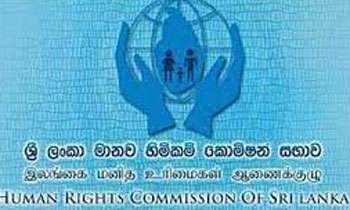
 2018-05-30
2018-05-30The status of the Human Rights Commission of Sri Lanka’s (HRCSL) had been upgraded to ‘A’ from the previous ‘B’ by the National Human Rights Institutions (NHRIs), the international accreditation agency for national human rights institutions.
Dr. N. Deepika Udagama, the Chairperson of the HRCSL said they received an official notification from the NHRIs about the upgrade yesterday.
Speaking to Daily Mirror, Dr. Udagama said it is difficult to get an A status because the NHRIs is very particular about the principles and independence of a country’s Human Rights Commission.
“The Commission’s independence both structurally and in practice and effectiveness of the Commission in terms of looking at various human rights issues in the country are looked at by the NHRIs. If a Commission does not work on difficult issues like torture or discrimination, it won’t receive the A grade. The NHRIs look at many issues, mainly dealing with its independence at tackling human rights issues without fear or favour,” she said.
She said the latest accreditation is a great victory for Sri Lanka and that it was a result of a collective effort of all the commissioners and everyone at the commission.
“This is also a victory for the 19th Amendment because its the Constitutional Council which nominates members to the Commission. The Chairperson is appointed by the President from among the nominations made by the Constitutional Council. I think that has gone a long way and as Chair I have to say in all honesty that I'm very lucky because I have got a very strong commission.
The commissioners bring in a lot of talent and they are fiercely independent. Otherwise, it would have been very difficult because there was an issue of credibility of the commission. That’s the challenge we had when we took over. There was the sense that the Commission did not want to take up certain issues which are considered to be politically sensitive. For us, the biggest challenge was to win the confidence of the public,” Dr. Udagama said.(Lahiru Pothmulla)

Sunday, May 27, 2018
When the king cobra kills, it is said that its glare is so unnerving
that the victim is fascinated first into a state of terrified immobility
before the strike occurs, paralyzing through the injection of a potent
neurotoxin that immobilizes the central nervous system. The victims,
(including humans if the dose is large enough), can feel impending death
but be completely powerless to prevent it, sans immediate recourse to
anti-venom treatment.
In some ways, it feels as if Sri Lanka is in that advanced state of paralysis as the country lies transfixed in a state of apathy with a quarreling National Unity Government, overtly ambitious constitutional reforms going nowhere and urgent economic problems of the populace remaining unsolved. One disaster after another continues to hit the most vulnerable as the monsoon rains envelop the land bringing deaths and homelessness in their wake. First the drought, then the rains hammer Sri Lanka with equally devastating effect and we have no mitigation system in place beyond politicians distributing relief to desperate people.
Indeed there is an inescapable link between political chicanery, natural
disasters and human misery. Corruption, unplanned developments and
unauthorized constructions have meant that natural disasters turn
deadlier each year. Even as Colombo was built up to be the ‘prettiest
city in Asia’ during the Rajapaksa years, its wetlands were mercilessly
encroached on with political patronage and no regard for the law. Now as
rain waters routinely flood the city, we see one direct consequence
thereof.
But our memories are short. And mistakes aplenty made by this Government
has paved the way for the return of the Rajapaksas in a more venomous
avatar than before, cheered on in no doubt by Colombo’s capitalist class
which brazenly genuflected before the family brand in the (political)
‘coming out’ of former President Mahinda Rajapaksa’s brother and onetime
Secretary of Defence, Gotabhaya Rajapaksa recently.
Remarkable displays of absurdity
An effective antidote to this current paralysis would have been far reaching party reforms in Sri Lanka’s two major parties, the United National Party (UNP) and the Sri Lanka Freedom Party (SLFP), compelled by, if not anything else, the bruising results of the local government elections a few months ago. Boasting of its ‘democratic credentials’ as UNP party seniors are wont to do, is to little purpose in the absence of a radical reimaging of its image and reconnection with its rural constituents. Meanwhile the less said about the SLFP, the better as it thrashes about in a state of stupefying bewilderment.
Each distasteful muddle continues to be as bad as the other. It was
unacceptable enough that United National Party government members from
the parliamentary watchdog Committee on Public Enterprises (COPE) had
tarnished themselves by engaging in phone conversations with Arjun
Aloysius of Perpetual Treasuries ill-fame even as COPE was engaging in
an inquiry against him. But in a display of quite remarkable absurdity,
those very same members were re-appointed to COPE in the new
parliamentary session. Known rogues of the Joint Opposition protested
against the re-appointments in high moral flood. In theory, the United
National Party may well cling to the explanation that its
representatives on COPE had done nothing that had been proved to be
wrong during the Aloysius inquiry and should therefore not be penalized.
However the sheer absence of commonsensical strategy in allowing yet
another stick for the Joint Opposition to beat and that too, in regard
to the Perpetual Treasuries fiasco, (the Achilles heel of the
Government) beggars the proverbial imagination. On the other hand, the
confession of a once prominent SLFP Minister that Aloysius had
contributed towards his election campaign fund in 2015 contributes to
this tragi-comedy. An ordinary man or woman watching this parliamentary
pantomime could not be blamed for calling down curses on all
politicians.
Accusing fingers need to point inwards
Then again, it is notable that Prime Minister Ranil Wickremesinghe warned in a speech widely carried on national television a few days ago that journalists who are supporting a Rajapaksa-return are at risk of being disappeared themselves. That was the strategy used by the family dominated regime in power to ‘tame the media, so beware of what you want’, he added.
Far be it my intention to defend the indefensible given the shamelessly
transparent manner in which the private electronic media in particular
peddle their political agendas over the airwaves. But perhaps the Prime
Minister may also fittingly point the accusing finger inwards towards
his own Government given its equally shameless record of doing very
little to close outstanding cases of journalists who had disappeared
without a trace or had been assassinated and beaten up during the
Rajapaksa decade.
Thursday’s conviction of General Secretary of the BBS, Ven. Galagoda
Aththe Gnanasara by the Homgama Magistrates Court for threatening and
criminally harassing the wife of disappeared cartoonist Prageeth
Ekneligoda two years ago brings this question forcibly to mind. It
remains to be seen as to what sentence will be passed down on the
offender. But the issue here is larger than this one slim victory. The
Government needs to acknowledge that pointing fingers (even justifiably)
at the media wholly bypasses its own responsibility in failing to bring
outstanding cases of gross human rights violations to justice. In the
meantime, its party reforms have been largely unconvincing to the
ordinary people.
The king cobra and its prey
So the paralysis of the nation awakens the fitting image of the king cobra and its prey, as it surely must. Only this time it is an entire nation that will be in the throes of its own death struggles. And even if there is a re-grouping of resistant liberal democratic forces, far greater popular cynicism will be evidenced.
The inanities and political motivated agendas of activists comprising
civic movements appearing to work for the people but paradoxically
willing to disregard core values of the Rule of Law in support of
political imperatives in 2015 saw to that. ‘Activist’ voices of protest
were transformed almost overnight to uncritical proponents of government
policy, defending stuttering anti-corruption efforts and deeply flawed
transitional justice processes alike. Now we will face the consequences
of that monumental shortsightedness if not lack of wisdom. It does not
really help when pessimistic predictions turn out to be right. One would
wish almost desperately to be proved wrong but such wishes are of no
avail.
Meanwhile the Government now tosses a casual explanation that the much
ballyhooed lessening of indirect taxes imposed on the people. (touted as
to why the entire tax structure was revised despite cautions that
reforms were done clumsily and without forethought), will be seen only
two years hence. By that time, both this painful circus and the
political caterwauling would assuredly be over amidst the tatters of the
2015 ‘rainbow revolution.’
Barring a miracle, a harsh reckoning seems inevitable for this land and its sadly paralyzed people.
Canadian Tamil Youth Alliance launch Tamil Genocide Memorial Museum website
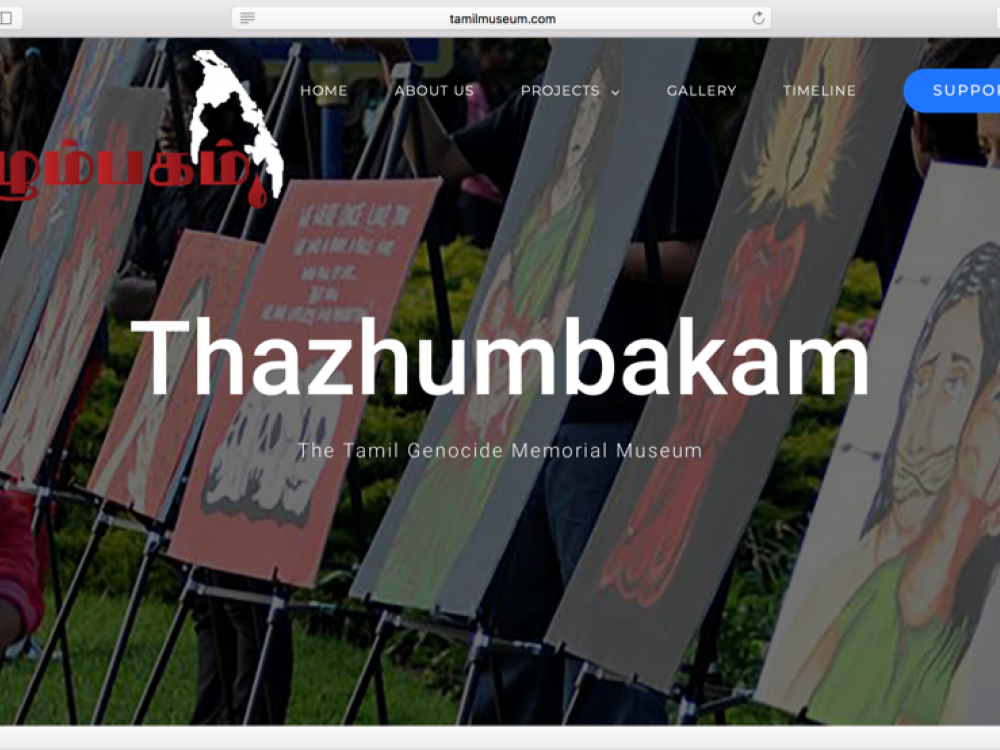
 27May 2018
On Saturday, May 26th the
Human Rights Advocacy (HRA) council of the Canadian Tamil Youth
Alliance (CTYA) launched the official website for Thazhambakam: Tamil
Genocide during an event titled, The Macabre of the Silenced, in Toronto.
CTYA, a federally registered non-profit organization, is made up of a
volunteer run executive council and board of directors. CTYA’s vision is
“to empower Canadian Tamil youth to become outstanding leaders and
citizens in our society.” CTYA has 5 councils: Arts and Culture,
Athletics, Education and Career Development, Human Rights Advocacy, and
Tamil National Development. Thazhambakam: Tamil Genocide Memorial Museum
is an initiative led by the HRA council.
The website, www.tamilmuseum.com, consists of a timeline that documents Eelam Tamil history and the collective struggle for justice.
The event took place at the Jess Gorlicky Designs Art Gallery and
featured several Tamil diaspora artists, including Arani Nadesan, Keera
Ratnam, and Sindu Sivayogam.
27May 2018
On Saturday, May 26th the
Human Rights Advocacy (HRA) council of the Canadian Tamil Youth
Alliance (CTYA) launched the official website for Thazhambakam: Tamil
Genocide during an event titled, The Macabre of the Silenced, in Toronto.
CTYA, a federally registered non-profit organization, is made up of a
volunteer run executive council and board of directors. CTYA’s vision is
“to empower Canadian Tamil youth to become outstanding leaders and
citizens in our society.” CTYA has 5 councils: Arts and Culture,
Athletics, Education and Career Development, Human Rights Advocacy, and
Tamil National Development. Thazhambakam: Tamil Genocide Memorial Museum
is an initiative led by the HRA council.
The website, www.tamilmuseum.com, consists of a timeline that documents Eelam Tamil history and the collective struggle for justice.
The event took place at the Jess Gorlicky Designs Art Gallery and
featured several Tamil diaspora artists, including Arani Nadesan, Keera
Ratnam, and Sindu Sivayogam.
 Artwork by Sindu Sivayogam (IG: @murukku)
The event included guest presentations by Dharsha Jegatheeswaran the
Research Director of the Adayaalam Centre for Policy Research and Tasha
Manoranjan the Executive Director of People for Equality and Relief in
Lanka (PEARL).
Artwork by Sindu Sivayogam (IG: @murukku)
The event included guest presentations by Dharsha Jegatheeswaran the
Research Director of the Adayaalam Centre for Policy Research and Tasha
Manoranjan the Executive Director of People for Equality and Relief in
Lanka (PEARL).
 Dharsha Jegatheswaran, Research Director, Adayaalam Centre for Policy Research
Ms. Jegatheeswaran highlighted the militarization and securitization of
the North-East and the continued resistance and strength demonstrated by
the Eelam Tamil population post-2009 in her presentation.
Dharsha Jegatheswaran, Research Director, Adayaalam Centre for Policy Research
Ms. Jegatheeswaran highlighted the militarization and securitization of
the North-East and the continued resistance and strength demonstrated by
the Eelam Tamil population post-2009 in her presentation.
“The physical presence of the
military is very much felt by everyone there…we look at the
militarization problem and I think a lot of us in the diaspora can see
why that’s problematic. We can see why having such a militarized zone in
the North-East is extremely problematic, particularly with a military
that stands accused of horrific war crimes, genocide, crimes against
humanity. But what we sometimes don’t talk about, that we need to
discuss more is what impact it’s having on the Tamil community there, on
a sense of Tamilness and on the sense of the Tamil Nation.”
Referencing PEARL’s most recent report, Denied or Delayed: Sri Lanka’s Failing Transitional Justice Process, Ms. Manoranjan spoke about the Tamil struggle for justice and accountability.
“Our audience here is not the Tamil
community. The Tamil community knows that justice is not going to be
given by the Sri Lankan government. Justice needs to come from the
international community. But the international community has been very
willing to listen to Sri Lanka’s empty promises and empty rhetoric but
is unwilling to confront Sri Lanka’s actual actions on these issues.”
The guest presentations were followed by a screening of 47 Roots’ documentary “Sri Lanka’s Disappeared.”
In her concluding remarks the President of CTYA, Thivya Shanthakumar,
outlined the importance of having a physical space for a Tamil Genocide
Museum.
“In 2013 CTYA started the
Thazhumbakam Tamil Genocide Memorial Mobile Museum with paintings which
portrays the genocide and the hardships our people had faced.
The goal isn’t just to continue
hosting mobile exhibits, but to one day have a physical space where we
can display our artwork and other important artefacts.
Imagine that one day our future
generation, our kids will be able to walk into a Tamil Genocide Memorial
museum and be able to teach the wider community about our history and
the genocide of Tamils in Sri Lanka. History is important because it
allows us to understand our past, which in turn allows to understand our
present. Our history is an important aspect of our Tamil identity, and
we must be able to teach our story to the future generation before
someone else does.”=
 Macabre of the Silenced event organizers, guest presenters and artists.
Macabre of the Silenced event organizers, guest presenters and artists.

27May 2018
On Saturday, May 26th the
Human Rights Advocacy (HRA) council of the Canadian Tamil Youth
Alliance (CTYA) launched the official website for Thazhambakam: Tamil
Genocide during an event titled, The Macabre of the Silenced, in Toronto.
CTYA, a federally registered non-profit organization, is made up of a
volunteer run executive council and board of directors. CTYA’s vision is
“to empower Canadian Tamil youth to become outstanding leaders and
citizens in our society.” CTYA has 5 councils: Arts and Culture,
Athletics, Education and Career Development, Human Rights Advocacy, and
Tamil National Development. Thazhambakam: Tamil Genocide Memorial Museum
is an initiative led by the HRA council.
The website, www.tamilmuseum.com, consists of a timeline that documents Eelam Tamil history and the collective struggle for justice.
The event took place at the Jess Gorlicky Designs Art Gallery and
featured several Tamil diaspora artists, including Arani Nadesan, Keera
Ratnam, and Sindu Sivayogam.

Artwork by Sindu Sivayogam (IG: @murukku)
The event included guest presentations by Dharsha Jegatheeswaran the
Research Director of the Adayaalam Centre for Policy Research and Tasha
Manoranjan the Executive Director of People for Equality and Relief in
Lanka (PEARL).

Dharsha Jegatheswaran, Research Director, Adayaalam Centre for Policy Research
Ms. Jegatheeswaran highlighted the militarization and securitization of
the North-East and the continued resistance and strength demonstrated by
the Eelam Tamil population post-2009 in her presentation.
“The physical presence of the military is very much felt by everyone there…we look at the militarization problem and I think a lot of us in the diaspora can see why that’s problematic. We can see why having such a militarized zone in the North-East is extremely problematic, particularly with a military that stands accused of horrific war crimes, genocide, crimes against humanity. But what we sometimes don’t talk about, that we need to discuss more is what impact it’s having on the Tamil community there, on a sense of Tamilness and on the sense of the Tamil Nation.”
Referencing PEARL’s most recent report, Denied or Delayed: Sri Lanka’s Failing Transitional Justice Process, Ms. Manoranjan spoke about the Tamil struggle for justice and accountability.
“Our audience here is not the Tamil community. The Tamil community knows that justice is not going to be given by the Sri Lankan government. Justice needs to come from the international community. But the international community has been very willing to listen to Sri Lanka’s empty promises and empty rhetoric but is unwilling to confront Sri Lanka’s actual actions on these issues.”
The guest presentations were followed by a screening of 47 Roots’ documentary “Sri Lanka’s Disappeared.”
In her concluding remarks the President of CTYA, Thivya Shanthakumar,
outlined the importance of having a physical space for a Tamil Genocide
Museum.
“In 2013 CTYA started the Thazhumbakam Tamil Genocide Memorial Mobile Museum with paintings which portrays the genocide and the hardships our people had faced.The goal isn’t just to continue hosting mobile exhibits, but to one day have a physical space where we can display our artwork and other important artefacts.Imagine that one day our future generation, our kids will be able to walk into a Tamil Genocide Memorial museum and be able to teach the wider community about our history and the genocide of Tamils in Sri Lanka. History is important because it allows us to understand our past, which in turn allows to understand our present. Our history is an important aspect of our Tamil identity, and we must be able to teach our story to the future generation before someone else does.”=

Macabre of the Silenced event organizers, guest presenters and artists.
A Special Experts Committee To Finalize Constitutional Reforms
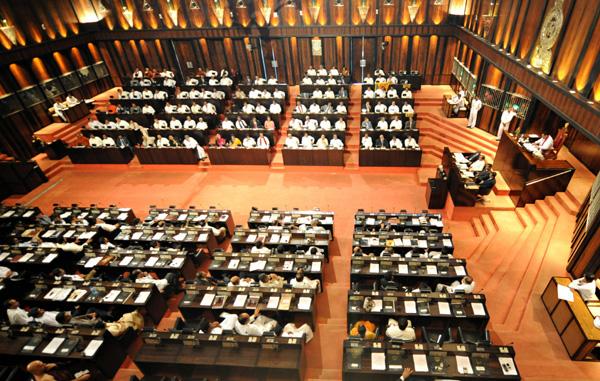

Additional Secretary to the Constitutional Assembly
Constitutional Assembly,
Parliament of Sri Lanka.
Parliamentary Complex,
Sri Jayewardenepura,
Kotte.
Dear Madm,
A Special Experts Committee to Finalize Constitutional Reforms
I address this note consequent to a media report stating that the Prime
Minister, following an appeal by the Leader of the Opposition, has
instructed the special Experts Committee of the Constitutional Assembly
to finalize the Constitutional Reform proposals, taking account of the
six experts sub-committee reports already received.
I take the liberty of making this repeat submission, setting out in
summary 10 points, which I firmly believe to be essential areas of
reform, critical in assuring socio economic good governance and thus
must be reflected within the finalized constitutional reforms
submissions of the special Experts Committee:
1. Reforms Defining the Independence, Role, Responsibility and Accountability of Chief Accounting Officers/Ministry Secretaries
There is a need to clearly define and separate by way of a
Constitutional amendment, the role, responsibilities and accountability
division between the head of department (the Ministry Secretary /Chief
Accounting Officer) and the political head (called the ‘executive
authority’ being either the Minister or the Deputy Minister or even the
Cabinet of Ministers).
The executive authority is responsible for setting out policy choices
and desired outcomes, while the chief accounting officer develops
essential concepts in support of selected policy choices, plans and
implements the policy /guidelines set by the political authority. It is
the accountability of the Chief Accounting Officer to take all executive
decisions in the implementation of plans; and take all other steps and
issue executive orders, which leads to the realization of the outcomes.
For this purpose, the Chief Accounting Officer assumes responsibility
for delivering the outputs defined in the departmental budget. Thus the
Constitution must empower the chief accounting officers by unambiguously
conferring on them a clear set of responsibilities. The chief
accounting officer prepares the departmental budget (specified in terms
of measurable objectives) for the Minister to approve and present to the
legislature for voting. The chief accounting officer is then
responsible for implementing and managing the budget.
In pursuit of above essential reform:
a) Amend the provisions of Article 52(2) of the Constitution to ensure that, the
Ministers will henceforth only engage in setting policy; and will not
discharge the expanded responsibilities of direction and control endowed
in them post the 1972 Constitution; and thus ensure that Ministers will
leave all responsibilities connected with the supervision, direction
and control of the Ministries, Departments and other Institutions under
the Ministry to the Secretary of the Ministry, who will henceforth be duly accountable for such expanded responsibility.
b) Amend the provisions of Article 52(3) of the Constitution whereby, the
Secretaries of Ministries will not be changed with every change of the
Cabinet of Ministers; or with the change of a Minister.
c) Amend the provisions of Article 55(2) of the Constitution to assure that, the
appointment, promotion, transfer, disciplinary control and dismissal of
all Heads of Departments shall, vest in the Cabinet of Ministers, but
be subject to the transparent and due independent evaluation and
recommendations of the Public Services Commission and the Constitutional
Council.
2. Correctly Represent the Duties and Functions of the Auditor General, determined based on the English version of the Article 154 of the Constitution, thereby amending the wrong and restrictive interpretation given in the Sinhalese version.
3. In
Chapter VIII of the Constitution dealing with the Cabinet of Ministers
and Secretaries, include new provisions to require that
a) all members of the Cabinet ( including the President where he holds
office concurrently as a Minister) and the Secretaries of Ministries be
required to declare to the Secretary to the Cabinet, a complete schedule
of personal and family ( family being the spouse, children, step
children, brothers, sisters, parents and in-laws ) interests in
businesses, professions, contracts, etc and all related party entity
interests, connected to the member and his family; and undertake to make
a declaration, where ever a conflict of such interests arise or is
deemed likely to arise, in connection with any state business,
appointment or transaction, either directly or indirectly connected to
the Minister and/ or his family. The Secretary to the Cabinet shall duly
maintain the relevant Register of Interests.
b) All members of the Cabinet ( including the President where he holds
office concurrently as a Minister) and the Secretaries of Ministries to
undertake annually by sworn affidavit submitted to the Secretary to the
Cabinet, that they will not receive, collect, claim, make arrangements
for accommodation/collection, or facilitation either directly or
indirectly, of any payments, funds, investments, assets, transfer and
holding of beneficial interests, benefits, perks, gratuitous receipts in
kind or otherwise, from the State, any Ministry, Department, Public
Corporation or Company of the state, directly or indirectly, whether
fully or partly owned by the State, or any private entity or any other
form of corporate entity, local or overseas, with whom the state has any
business or other connections; and that any such benefits received or
held to the beneficial interests will be duly reported to the Secretary
to the Cabinet and copied to the Auditor General, by the Minister and or
his family members and by any individual or institution making such
benefits available to the Minister or family
c) Any member of the Cabinet( including the President where he holds office concurrently as a Minister) or
any Secretary who knows or has reason to believe from information or
other matters connected to or obtained by him in the course of carrying
on his responsibilities and functions of office, that any or regulation
for the time being in force has been violated or is likely to be
violated or that any property owned or held in beneficial interest by
any person has been derived or realized from any unlawful activity, any
such member of Cabinet or any Secretary shall disclose his knowledge or
belief as soon as is practicable, to the Secretary to the Cabinet who
shall deal with that information in terms of the laws, regulations and
rule of law enforcement stipulations.
4. Amend
Article 55 (2) to read as “The appointment, promotion, transfer,
disciplinary control and dismissal of all Secretaries, Heads of
Department and any
persons holding office at the level of an Ambassador, High
Commissioner, Director, Chief Executive, Departmental Head (including a
position of a Deputy or Assistant Departmental Head) of the State, a
Ministry, a Department, Public Institution, Public Corporation, Public
Private Partnership Company or Regulatory Body, shall, vest in the Cabinet of Ministers upon such appointment promotion, transfer, disciplinary control and dismissal being reviewed and recommended by the Constitutional Council.
5. Annual Certification by Chief Accounting Officers/Heads of Functions
In order that all key Chief Accounting Officers and Office Holders
specified in Article 52 (4) of the Constitution duly discharge their
Accountability for Public Finances, State Assets and Liabilities
management, upholding principles of transparency, good governance in
compliance with codes of ethics and conduct befitting their office and
in compliance with laws and regulations require such Chief Accounting
Officers and key Public Officials to file before the Secretary to the
Cabinet a Certificate annually, in the form of affidavits stating that
they together with their key supporting Officers, have in the course of
the discharge of their duties and responsibilities of office have to the
best of their knowledge and belief acted as “fit and proper” persons.
Read More
C.V. Vigneswaran’s de-legitimization of remembrance
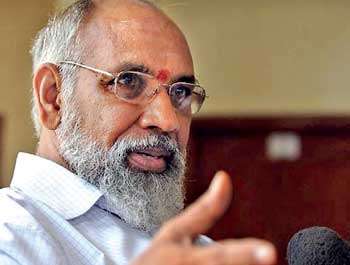
2018-05-29
 A
decision by a local bank to suspend two of its employees for
commemorating the war dead of the final phase of the Eelam war has now
caused a fresh wave of controversy. The ‘disciplinary action’ was
purportedly taken after Sinhala nationalist social media highlighted the
incident. The Bank said in a media statement, “HNB takes very seriously
any sentiment or act that is in violation of, or poses a threat to the
morale of citizens of Sri Lanka. As a Bank that stands for all Sri
Lankans, our goals, interests and initiatives are all aligned to the
vision and greater good of our Country.”
A
decision by a local bank to suspend two of its employees for
commemorating the war dead of the final phase of the Eelam war has now
caused a fresh wave of controversy. The ‘disciplinary action’ was
purportedly taken after Sinhala nationalist social media highlighted the
incident. The Bank said in a media statement, “HNB takes very seriously
any sentiment or act that is in violation of, or poses a threat to the
morale of citizens of Sri Lanka. As a Bank that stands for all Sri
Lankans, our goals, interests and initiatives are all aligned to the
vision and greater good of our Country.” “We
regret an unauthorized incident that took place recently in one of our
branches, which does not reflect the values of the Bank. The matter has
been investigated and necessary action taken.”
“We
regret an unauthorized incident that took place recently in one of our
branches, which does not reflect the values of the Bank. The matter has
been investigated and necessary action taken.” The management response has however drawn condemnation from Tamil society, and Tamil diaspora groups, who are unlikely to have accounts on the HNB anyway, have called for a boycott of the bank.
The third question however is political connotations behind these events
This
incident raises several important questions which go beyond the usual
contentions over the amount of control that an employer can have over
its employees. In general, companies that try to control private lives
of their employees are loathed, sued and discredited. Whereas, there is
no consensus as to how much control the employers could wield over the
professional conduct of their workers. The problem get complicated when
the private conduct of the employees are intertwined, or viewed as such,
with their professional lives. Commemorating the war dead in an
impromptu event inside the Kilinochchi branch of the HNB during the
working hours falls well within the employer’s purview. However,
businesses do celebrate many events, ranging from religious and national
festivities to the Indian Ocean tsunami. On the other hand, if the HNB
employees in Hambantota choose to commemorate those who perished in the
JVP uprising in 1989, one would wonder whether the bank would act with
the same diligence. This lead to the second question of what is
‘permissible’ – and what is not. That is a tricky question, more so in
the context of ethnic polarization and political fragmentation in the
country. Suspended employees have defended their action, claiming that
they had commemorated the dead civilians, and not the LTTE. Sinhala
nationalist right in the South thinks otherwise, and the bank has cowed
into their pressure. Leave aside the discredited claims of ‘zero
civilian casualties’ , a claim which effectively handed over a
propaganda victory to the Eelam Tamil fringe, there is no gainsaying
that a considerable number of civilians perished during the war.
The government’s repeated failure to give an accurate death count, which is not so much to provide, unless of course, there is a concerted effort by either side to distort the numbers , has now given rise to various concocted figures. If those suspended employees in Kilinochchi, have family members perished in the conflict, the bank decision obviously raise serious moral questions. That is the same moral question that Sri Lanka as a country is faced with in responding to the remembrance day on May 18.
This lead to the second question of what is ‘permissible’ – and what is not. That is a tricky question, more so in the context of ethnic polarization and political fragmentation in the country. Suspended employees have defended their action
The third question however is political connotations behind these events. They are no longer a matter of remembering the dead, but, are becoming purveyors of militant Tamil nationalism, the same kind that drove Tamils to Mullivaikkal in the past. The vast majority of victims of the war may desire to keep away from these increasingly polarizing political polemics. However, their politicians, and a microscopic minority of hard core have other calculations. The incendiary speech by Northern Chief Minister C.V.Vigneswaran, in which he announced an annual ‘Tamil genocide day’ on May 18 and called for international intervention is a case in point. Tamil political leadership has historically resorted to loaded language and trumped up grievances.And they were essentially anti-Sri Lankan. From the very beginning of the independence, they set the tone for confrontation: In 1950, much before the much lamented Sinhala Only Act, the Federal Party disowned the Sri Lankan Flag. All that incremental escalation finally metamorphosed into a nihilistic terrorism, which in a twist of fate for its early advocates, pounced on them, before eating two generations of Tamil children.
Chief Minister C.V. Vigneswaran who has fallen out with the TNA leadership is probably plotting to use another generation of Tamils as pawns. He has exploited new relative freedoms to advance his personal political ends.
All that incremental escalation finally metamorphosed into a nihilistic terrorism, which in a twist of fate for its early advocates, pounced on them, before eating two generations of Tamil children
He follows a well-trodden self- destructive path of gradual escalation.
He has vindicated the fears of Sinhalese nationalists as to where a
compromise would finally lead.
Tamils as a whole would not take stocks of his folly, as it had happened with different brands of charlatans and megalomaniacs in the past, until it is too late to push the reset button.Tamils’ remembrance of their own dead could well be the first casualty of his polarizing approach. But, that may not be the only one, if things are allowed to degenerate.
Subscribe to:
Posts (Atom)






